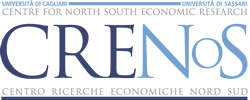Education or Creativity: What Matters Most for Economic Performance?
| Title | Education or Creativity: What Matters Most for Economic Performance? |
| Publication Type | Journal Article |
| Year of Publication | 2012 |
| Authors | Marrocu, E, Paci, R |
| Journal | ECONOMIC GEOGRAPHY |
| Volume | 88 |
| Issue | 4 |
| Pagination | 369-401 |
| Abstract | There is a large consensus among social researchers on the positive role that human capital plays in economic performances. The standard way to measure the human capital endowment is to consider the educational attainments of the resident population, usually the share of people with a university degree. Florida (2002) suggested a different measure of human capital—the “creative class”—based on the actual occupations of individuals in specific jobs like science, engineering, the arts, culture, and entertainment. However, the empirical analyses conducted so far have overlooked a serious measurement problem concerning the clear definition of the education and creativity components of human capital. This article aims to disentangle this issue by proposing a disaggregation of human capital into three nonoverlapping categories: creative graduates, bohemians, and noncreative graduates. Using a spatial error model to account for spatial dependence, we assess the concurrent effect of the human capital indicators on total factor productivity for 257 regions of EU27. Our results indicate that highly educated people working in creative occupations are the most relevant component in explaining production efficiency, noncreative graduates exhibit a lower impact, and bohemians do not show a significant effect on regional performance. Moreover, a significant influence is exerted by technological capital, cultural diversity, and industrial and geographic characteristics, thus providing robust evidence that a highly educated, innovative, open, and culturally diverse environment is becoming more central for productivity enhancements. |
| URL | http://onlinelibrary.wiley.com/doi/10.1111/j.1944-8287.2012.01161.x/abstract |
| DOI | 10.1111/j.1944-8287.2012.01161.x |
| Keywords | creativity, diversity, education, european regions, human capital, technological capital, tfp |
